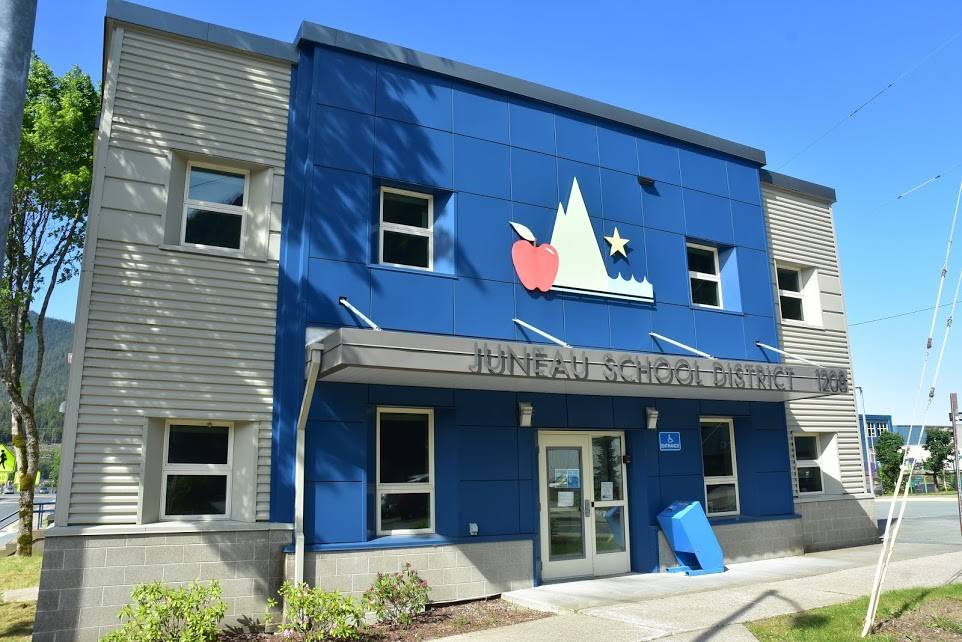By Kali Hofman
Inside this storm of a pandemic, revolution for civil rights and economic instability lies a silver lining. We have a perfect opportunity to think outside the box, both figuratively and literally. The box I am referring to is the school building. The School Board and Juneau School District Administration have made their decision: This school year will begin as distance education. I worry about families who cannot support such education. Even if the students were to go back to school, all those disinfecting chemicals have me recoiling. We all need our microbiomes as healthy as possible to protect us, not compromised by sterilizing chemicals.
Challenging times call for creative problem solving, but what I am proposing has historical precedent. According to an article in the New York Times titled “Schools Beat Earlier Plagues With Outdoor Classes. We Should, Too.” during outbreaks of tuberculosis in the early 20th Century, children in New England attended schools on rooftops, abandoned ferries or with windows wide open to ensure that they could breathe fresh air, even during frigid winters. Here in Juneau, we have an excellent setting for schools to embrace the outdoors. A recent article in The Atlantic, “Why Can’t We Just Have Class Outside?” states that some schools actually are making plans to start the school year out of doors. We should, too.
Marginalized and suppressed communities — Indigenous, Black, elderly, disabled and immigrant — are the ones bearing the brunt of this pandemic. They work on the front lines, under-protected and exposed to toxic chemicals, if they have work at all. Their stress levels run high even without a pandemic breathing down their necks. Their children tend to be the ones who will suffer the most difficulties from screen-based distance education.
The benefits of outdoor education are many. The CDC’s current guidelines recommend frequent hand washing, wearing a cloth face mask when around people outside of one’s household, and staying at least six feet apart from others. That sort of distancing is much easier to achieve outside. According to a Japanese study published in MedRxiv, evidence is showing that virus transmission is almost 20 times less likely to happen outside. Children who would otherwise not get much of an education this year would be able to attend school. Parents would not have to choose between working and homeschooling, and reduced chances of contracting the virus would help protect our valuable teachers.
Moving education outside can lead to other, greater benefits. Studies referenced in the article, “Childhood Nature Exposure Predicts Adult Mental Health,” published in Townsend Letter show that children with frequent access to the great outdoors have much better mental health as adults than those deprived of such access. Moreover, taking school outside can help to mend the rift between people and our natural world, instilling a better understanding and a love for our Earth in the generation that will need to buckle down and deal with the looming climate disaster.
The JSD and the School Board have spent months working to design a re-entry plan. We can use that model, but just change the venue. Our community can brainstorm with teachers to transfer curricula out of doors. Small groups of students can meet with their teachers in open-sided park shelters or tents when the weather is less than optimal. We can look to established forest schools in the U.S. and Europe, including Finland and Germany. If the Finns can teach their kids outside, then so can we. Instead of buying disinfectant sprays, we can redirect funds to long-term investments, such as warm clothing and footwear for students in need, bus driver salaries so students can travel in socially-distanced, open-windowed buses and rechargeable headset microphones so students can hear their teachers along the trail.
Are we willing to compromise the health of our community by investing further in confining our lives inside chemically sanitized boxes? Let us instead look to what we already have: an abundance of accessible outdoor recreation facilities, the teachers and parents already interested in creating outdoor schooling opportunities, and thousands of years of Native wisdom on how to thrive in our environment. Juneau has the resources and creative minds necessary to make this school year come together — outside!
• Kali Hofman is a resident of Juneau, Alaska, mother of three and a frequent volunteer at both Juneau Coop Preschool and Montessori Borealis. Columns, My Turns and Letters to the Editor represent the view of the author, not the view of the Juneau Empire. Have something to say? Here’s how to submit a My Turn or letter.

